What I like about reviewing indie games, you sometimes get a chance to review a hidden gem, as is the case with The Legend of Tianding. The attention to detail, combat, story, and music make this one of my favorite indie titles from this year.
You play as Liao Tianding, a Robin Hood-type character during the Japanese occupation of Taiwan in 1909. He’s a bit of a trickster who doesn’t have much fear. His goal is to punish the wicked and corrupt who have taken advantage of the poor during this occupation period. Captain Matsumoto constantly pursues him (who Tianding loving refers to as Captain Mustache), a Japanese police officer charged with keeping order in Taiwan. However, the Japanese government isn’t all that impressed with the way things have been going in Taiwan. They send in a commander from the secret police to take charge. And he’s much more ruthless than Captain Matsumoto and his crew. The story is a good mix of comedy and seriousness; the character growth throughout the game is part of what makes it so intriguing.
The story unfolds through a series of comic book-style panels and is voice acted in Taiwanese and Japanese. And the art is phenomenal. The amount of detail that went into the story panels and the game is well done. In addition, the art retains a lot of the manga style, even during gameplay. Quite a bit of affection went into creating the atmosphere. Characters roam the busy streets, rickshaws, and bicycles go by in the foreground; all this detail breathes life into the world. The music also plays a heavy part in setting the ambiance; it mixes traditional Taiwanese instruments and synth-pop. There’s even a “hidden” folk song about Liao Tianding. I am happy to report that the soundtrack is available for download.
The action is fast-paced in this sidescrolling beat ’em up. You use your sash to spin your enemies and steal their weapons. Each weapon you steal has a durability number, limiting the number of attacks you can do with the equipment. You also have a standard attack and special attacks you learn pretty early in the game. The special attacks are on a cooldown meter, preventing you from spamming them. Mixing up your attacks is critical in progressing. There are plenty of different enemies, creative designs, and puzzles so that I never felt bored during my time with the game. Every level is unique, ranging from fighting on a moving train to riding minecarts in an abandoned temple.
The boss fights are the game’s highlight, reminiscent of battles from Super Nintendo games. You’ll need to learn the boss’s patterns to defeat them. Unfortunately, you’ll probably end up dying a few times before you know the movements; thank goodness for saving spots. There are plenty of them throughout the game and usually one right before a boss battle.
Leveling is handled by collecting packages that give you bonuses to different stats. These can be drops after defeating a group of enemies in a level or collected by giving money to beggars on the street (with money you gather after beating bad guys). You also increase the number of steam buns used to replenish your health by talking to the chef in town. There is also a card game that you can play to earn (or lose) money.
While there is plenty of praise for the game, it doesn’t mean it’s flawless. For example, the loading screens are long, and unfortunately, there are plenty of them. In addition, there are a few spelling mistakes in the text, but so few that it’s not a distraction. My biggest complaint is how side quests get handled. A few characters in the town will ask you to go on fetch quests, requiring you to replay levels to find specific items. To access a level, you have to talk to the monk in the village to replay it. It took me a long time to figure that out on my own. And once you reach a certain point of the story, you can’t go back to do the side quests.
The Legend of Tianding is a beautiful sidescrolling beat ’em up that deserves to receive more attention than it’s getting. Its comic book art style carries through from the story to the gameplay. The action is fast-paced, the level designs well thought out, and the boss battles are challenging but fun. If you’re a fan of kung fu movies, you need to add The Legend of Tianding to your library.
Review: The Legend of Tianding (Nintendo Switch)
Great
The Legend of Tianding is a beautiful sidescrolling beat ’em up that deserves to receive more attention than it’s getting. Its comic book art style carries through from the story to the gameplay. The action is fast-paced, the level designs well thought out, and the boss battles are challenging but fun. If you’re a fan of kung fu movies, you need to add The Legend of Tianding to your library.

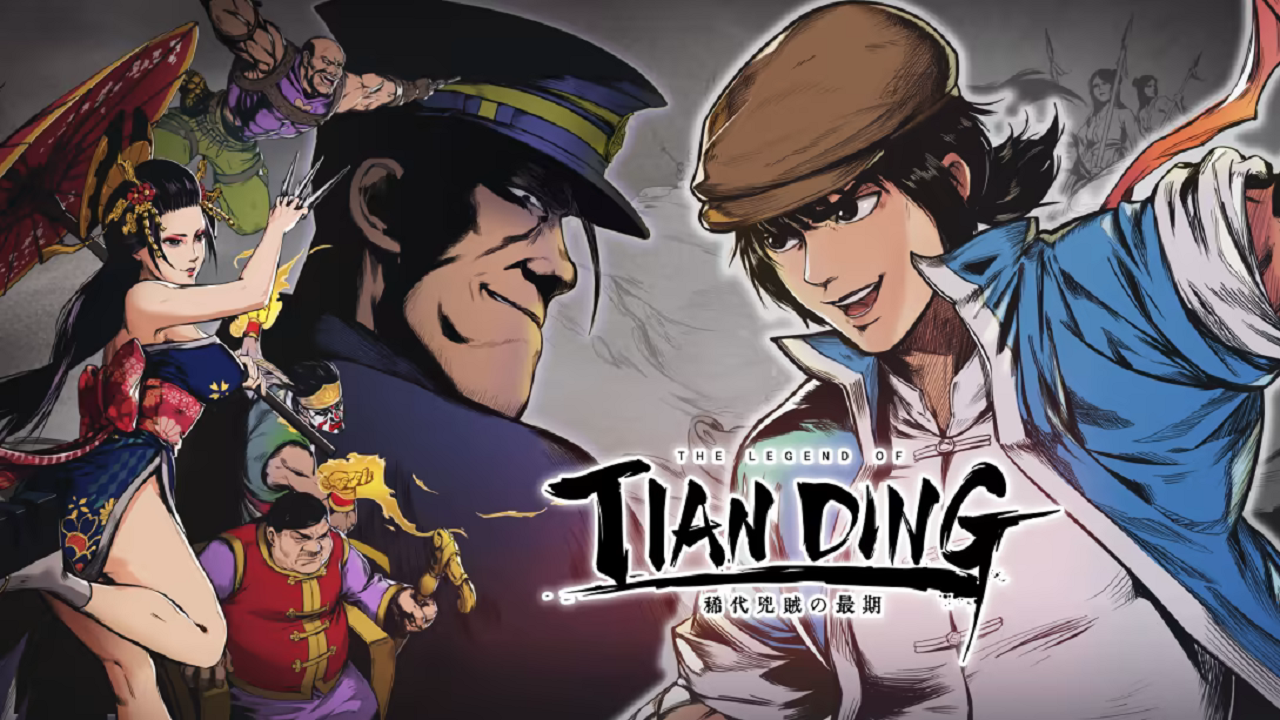
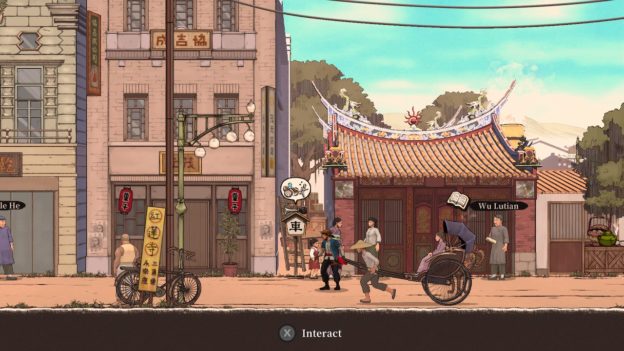
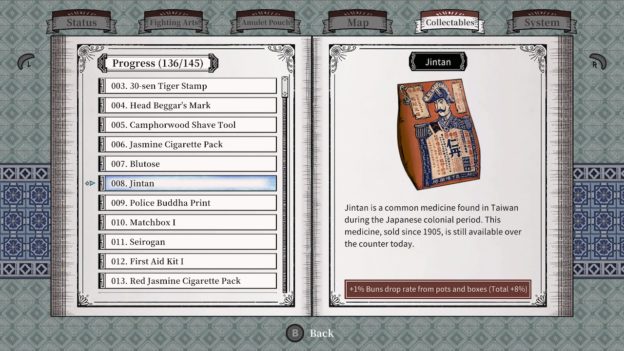
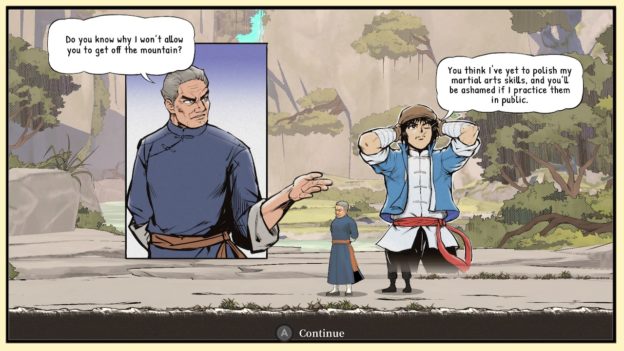
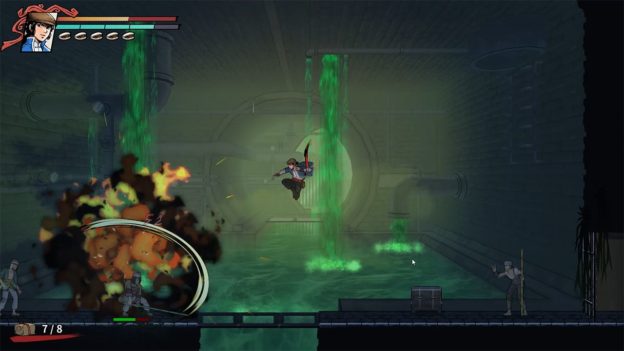
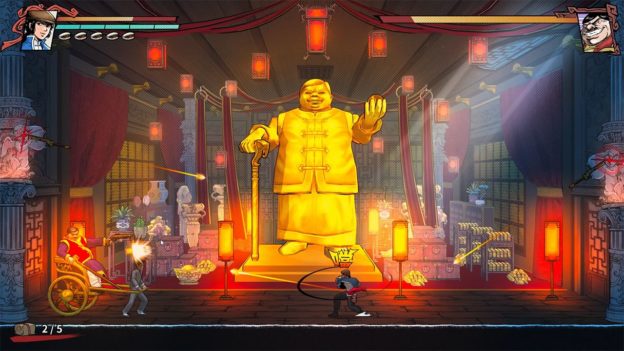

January 1, 2022
[…] Source link : Purenintendo […]